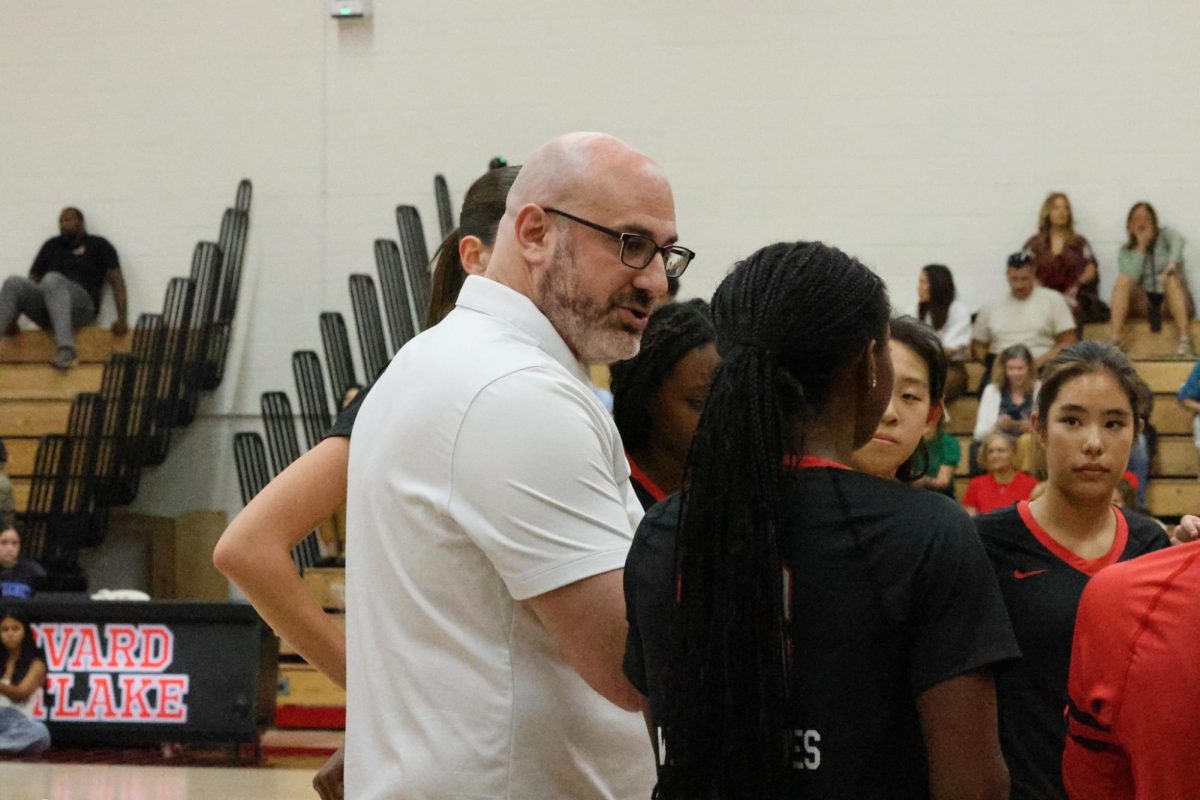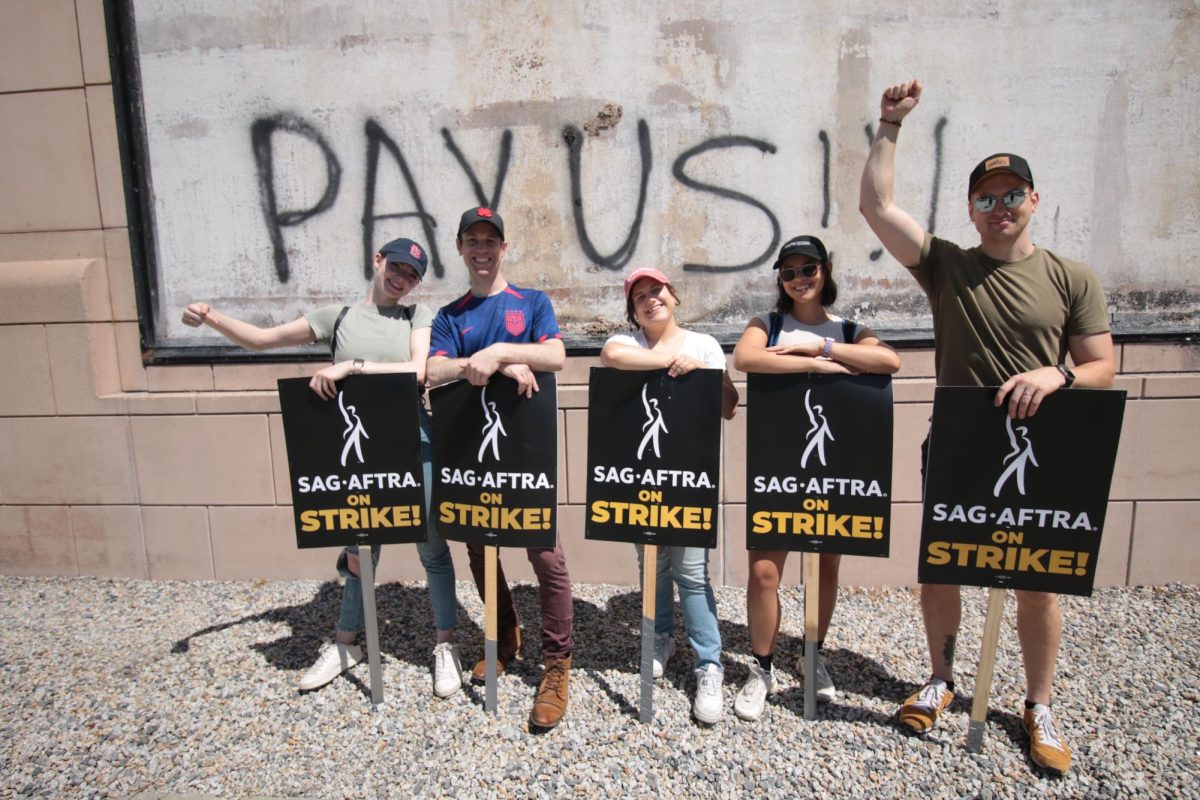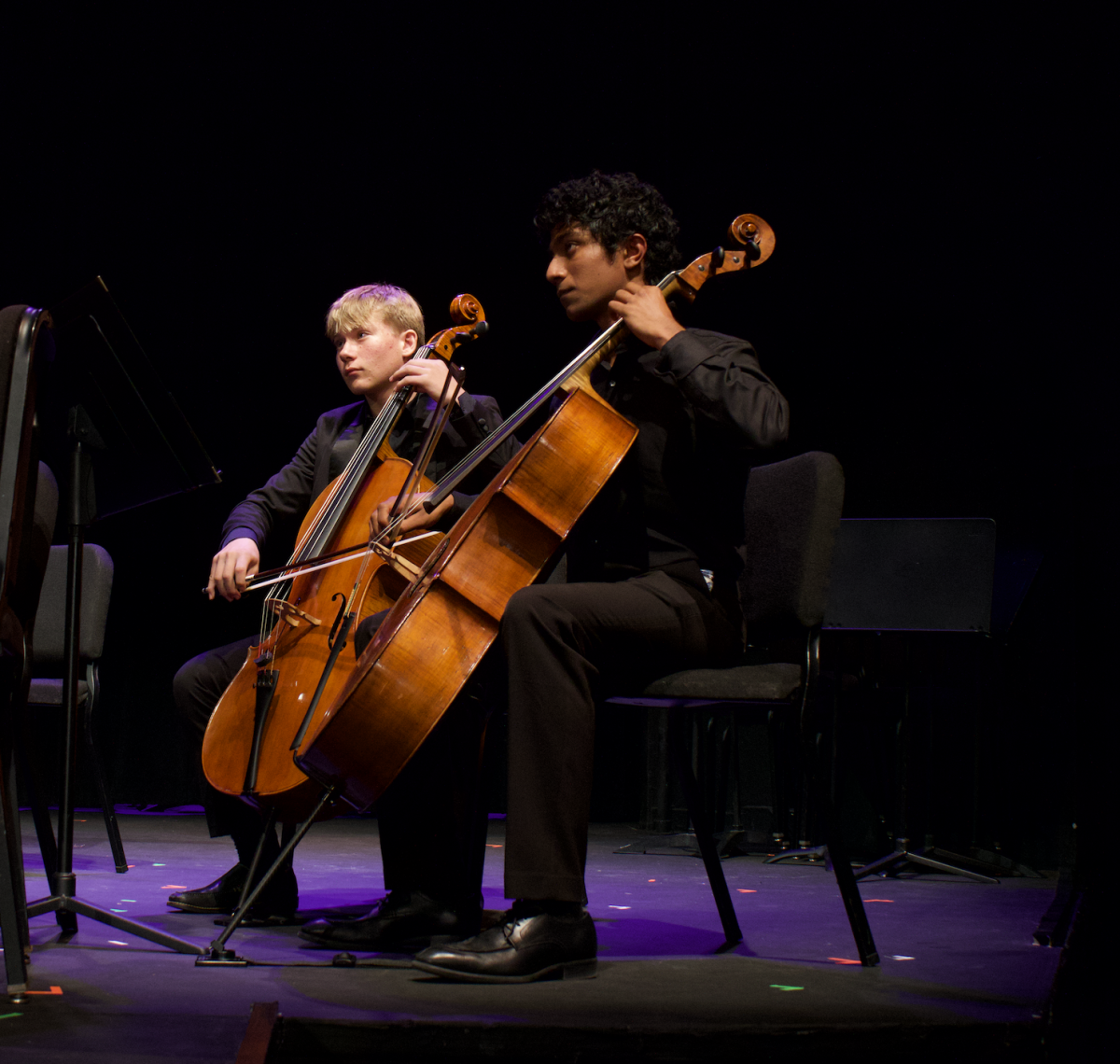Kate Goldberg ’25 stared at her computer, the finished script for a new short film she wrote looking back at her. She paused for a moment, wondering if she would like to pursue a career in screenwriting. One part of her had loved giving life to the characters and story that had been in her head for so long , but the other part didn’t — it was a demanding task that often garnered little recognition. . Moreover, she was concerned: it had been more than four months since the Writers Guild of America (WGA) went on strike, and she worried she might be entering a field that undervalued her work.
Goldberg said movies and TV shows are a big part of her life, and she is disappointed by the mistreatment of the people who bring these stories to life.
“Movies and TV shows are little things that make a big impact,” Goldberg said. “They occupy such a big space in our culture and serve as not just entertainment but are often works of art that can make us feel seen in ways we didn’t know we could be. That is why the mistreatment of the people that create those stories and pour their hearts into making us this content makes me completely bitter towards the entertainment corporations and industry as a whole. ”
After the Alliance of Motion Picture and Television Producers (AMPTP) refused to meet WGA demands for increased compensation for projects on streaming services and protections against the threat artificial intelligence (AI) poses to their jobs, writers began striking on May 2.
The Screen Actors Guild-American Federation of Television and Radio Artists (SAG-AFTRA) soon followed suit and began to protest declining residual pay due to streaming services July 14 . Prior to the rise of streaming services, residual pay occurred when a movie or TV show was re-aired or purchased on DVD. Now, residual payments are a small percentage of the initial pay based on viewership numbers. Actors are demanding a more fair and updated residual system, increased pay to match the rates of inflation andlike the WGA, protection against AI.
SAG-AFTRA Secretary-Treasurer Joely Fisher said failing to secure a deal would drastically impact the entertainment industry because the majority of actors currently struggle to make a living wage.
“It could be the end of the industry as we know it if we don’t get this deal,” Fisher said. “So few people know that only 2% of our members make over $200,000 a year, so we’re not fighting for the movie stars. We’re fighting for the actors that are trying to earn a living wage, qualify for health care and earn a pension so they can retire. We’re storytellers and artists, but this is also our job. So, if studios are making billions of dollars, we’re entitled to a tiny portion of that.”
Actor and member of SAG-AFTRA Max Greenfield, who portrayed Schmidt in “New Girl,” said the entertainment industry has changed drastically in the past few years, resulting in the strike.
“The WGA and SAG-AFTRA both have agreements with the studios that essentially guarantee two things: compensation and protections,” Greenfield said. “As time goes by and the entertainment industry changes these agreements or deals have to be amended to reflect that change. Over the past several years, especially with the introduction of streaming, that change has been astronomical. The business has been completely disrupted and common ground between the guilds and the studios [and] streamers at the conclusion of their respective deals could not be found, resulting in the current strike.”
Greenfield said the strike is not only important in allowing people to make a living wage but will also determine how the entertainment industry looks like in the future.
“This strike feels particularly important,” Greenfield said. “Obviously compensation and protecting health care and job security are at the forefront. The unions will stand strong on those issues, but it also feels like the entire industry is reshaping. What is gained or lost in these negotiations could determine what it ends up looking like.”
Founder of Alloy Entertainment Leslie Morgenstein said though he understands the struggles of the writers and actors , a solution will require compromise.
“I’m very empathetic,” Morgenstein said. “I think the issues are real and need to be solved, and I think they will be. There’s going to have to be a middle ground that both provides more to writers and actors and is economically feasible for the studios. I think we’ll find the middle ground, but obviously, neither side is going to be fully happy.”
Director of Media and Promotions for Westflix Jacob Lutsky ’24 said he appreciates films for more than their money-making aspects.
“The recent strikes definitely put a bad taste of the film industry in my mouth,” Lutsky said. “To me, film is more than just the big corporations. What I love about films and filmmaking is the process of bringing together so many intricate processes to make one big product. Regardless of the strike, I don’t think that aspect will ever go away.”
Formerly a professional actress, Upper School History Teacher Lilas Lane said the strike must result in the development of better contracts between studios and the creatives so the entertainment industry can support the people who work within it.
“This strike is make or break for the creatives in Hollywood,” Lane said. “If they don’t get a decent contract and some regulations in place, it is end game for those professions as viable careers, except for the lucky few at the very top. I think the producers are being incredibly greedy, and the contracts have been skewed toward producers and away from the creatives since the development of DVD and new media [in the 1990s].”
Micah Parr ’25, who makes films, said writing scripts is a very emotional process for him, and he is worried the advent of AI will ultimately lead to the obstruction of this time of reflection. He hopes to be the one to change the way the entertainment industry is run.
“Even though I mainly want to go into directing, the story has always been my personal favorite aspect of filmmaking,” Parr said. “The moments that I spend writing allow me to reflect on my true beliefs and emotions in ways that I otherwise would never be able to do. Knowing that I may not be able to do anything relating to [scriptwriting] because of studio greed and them wanting to use ChatGPT just selling any aspect of creativity for another dollar. [This] makes me want to do film more, not because I agree with what they do, but because I want to be the person to bring change even though I don’t know how to. ”
Max Dessner ’24, who is a part of Video Art, said he is shocked at how long the studios have let the strike run on.
“I remember at the beginning of the strike a lot of the leaders of the studios said they were just going to wait out the strikers,” Dessner said. “It’s been a few months now, and they actually seem to be staying true to their word. It’s inhumane, in a sense. The studios don’t seem to care about the suffering of other people. These are people not just tools or machines.”
Upper School History Teacher Erik C. Wade said strikes are necessary to keep large corporations accountable for their actions.
“The strike needed to happen [because] people who are doing amazing work on creative, consequential shows [and movies] aren’t able to access the middle-class life writers and actors once enjoyed,”Wade said. “This is true for so many laborers across the US. It’s more to keep corporations accountable to distributing the wealth they accumulate evenly to their workers, so those workers can have living wages moving forward.”
Fisher said the strike impedes actors from doing what they love, but is necessary to ensure better treatment.
“We all want to work,” Fisher said. “We want to be on sets and get back to telling stories to the world, because that is what we’re passionate about. So, while we may not want to be on strike, when facing the injustice actors have dealt with for decades, we need to stand up, make our voices heard and make history.”






























